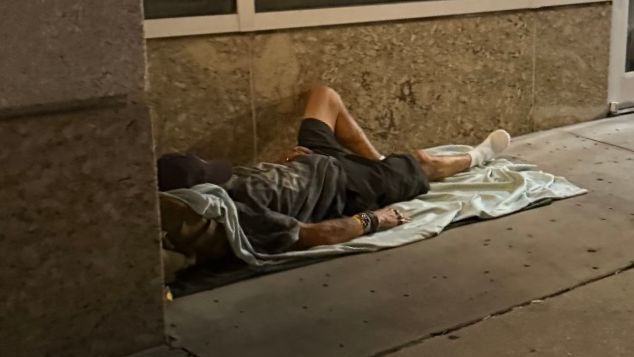ST. PETERSBURG, Fla. — The city of St. Petersburg has responded to the public sleeping lawsuit filed by downtown restaurant owner Ronicca Whaley by asking a judge to dismiss it due to vague assertions.
What You Need To Know
The city of St. Petersburg filed a motion to dismiss a public sleeping lawsuit
Ronicca Whaley’s one of the first people in Florida to file a suit under the new state law
The city states the lawsuit makes vague assertions about Whaley’s beliefs
Whaley’s attorney stated she only has to show any person is being regularly allowed to sleep on public property under the law
The city’s motion filed last month states, “The complaint warrants dismissal because it is replete with vague, conclusory and immaterial facts not obviously connected to any particular cause of action.”
In July, Whaley accused the city of failing to enforce a new state law which prohibits local governments from regularly allowing overnight sleeping on public property, which she said has been harming her business Shiso Crispy.
“The City’s failure to enforce this statute, particularly in Williams Park and the surrounding sidewalks near Plaintiff’s restaurants, constituents a blatant disregard for state law and undermines the safety, economic vitality and aesthetic integrity of the community,” states the complaint.
According to the city, Whaley’s lawsuit makes vague assertions “based on information and belief” and should not be a catchall to assert a laundry list of real or perceived personal grievances.
“Plaintiff’s ‘beliefs’ are not facts. There are no dates, times, nor names… this type of allegation is impossible to defend,” the motion stated.
Last week, Whaley’s attorney, Sandford Kinne, responded to the city’s motion to dismiss. Kinne said the state law does not require Whaley to identify specific individuals. Instead, she only has to show any person is being regularly allowed to sleep on public property.
“Defendant’s insistence that Plaintiff must produce the names of each individual sleeper, along with dates and times, would impose a burden that is neither found in the statute nor compatible with its purpose,” stated the opposition motion.
Kinne stated his client is not required to perform a census of those experiencing homelessness and the court should allow the case to proceed to discovery.
“Plaintiff’s factual allegations are neither vague, conclusory or irrelevant,” he stated. “The complaint is replete with specific instances of her personal observations of individuals sleeping in Williams Park and outside her restaurant.”
Whaley has said her goal is to get the city and county to create an area where the homeless are allowed to sleep overnight and get wraparound services. She also wanted to raise awareness about the problem downtown.
Whaley’s one of the first people to file a lawsuit in Florida under the new state law.
Attorney Kinne did not respond to a request for an interview. The city has a policy of not commenting on lawsuits. A court hearing on the matter has not yet been scheduled.

